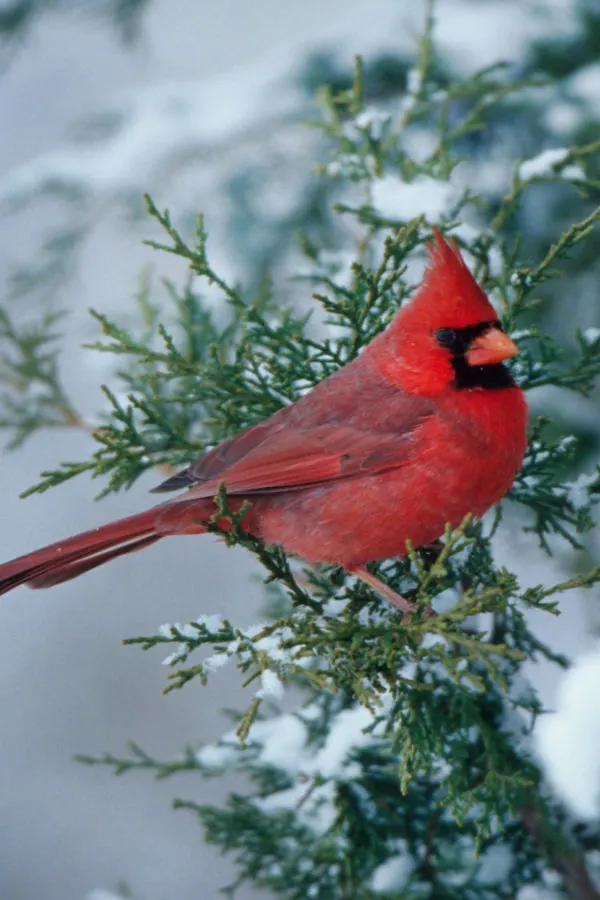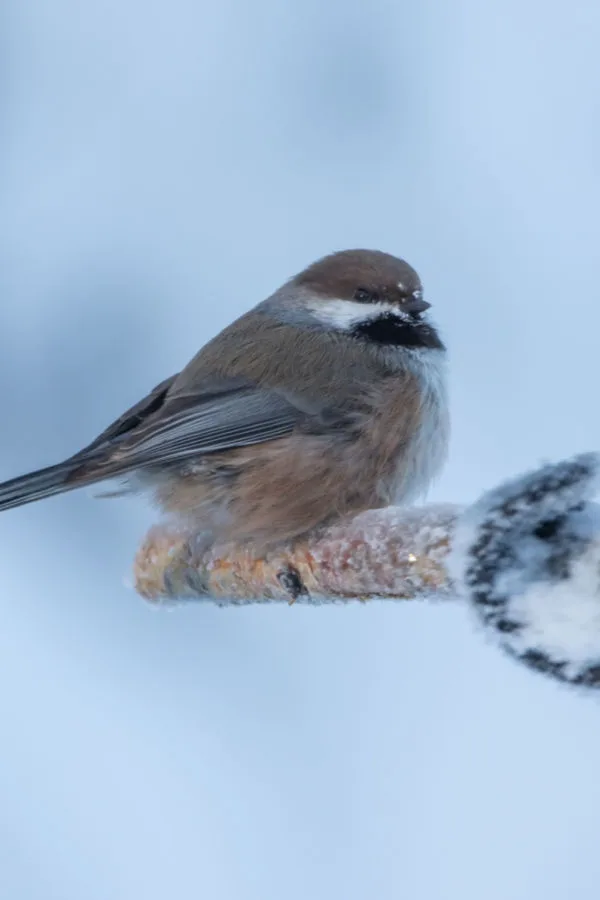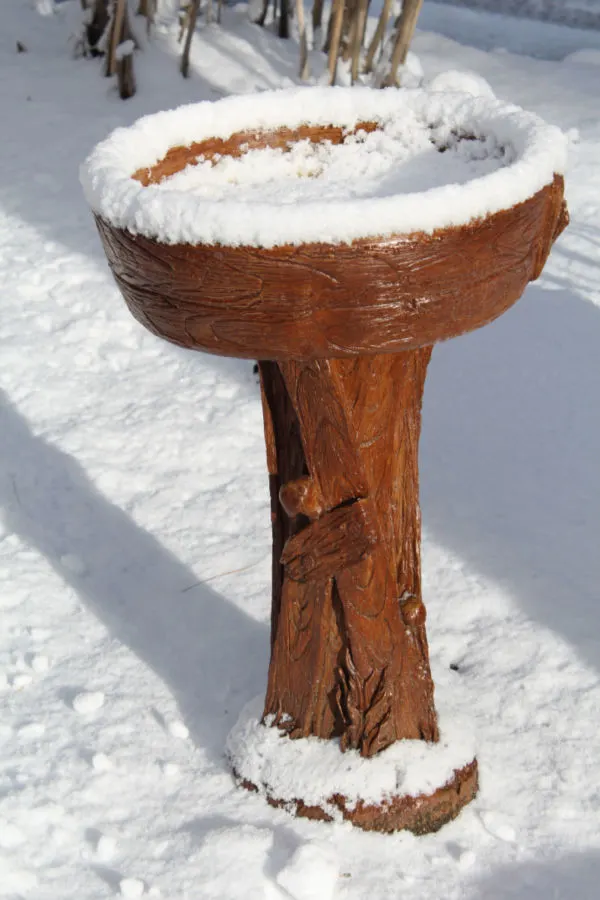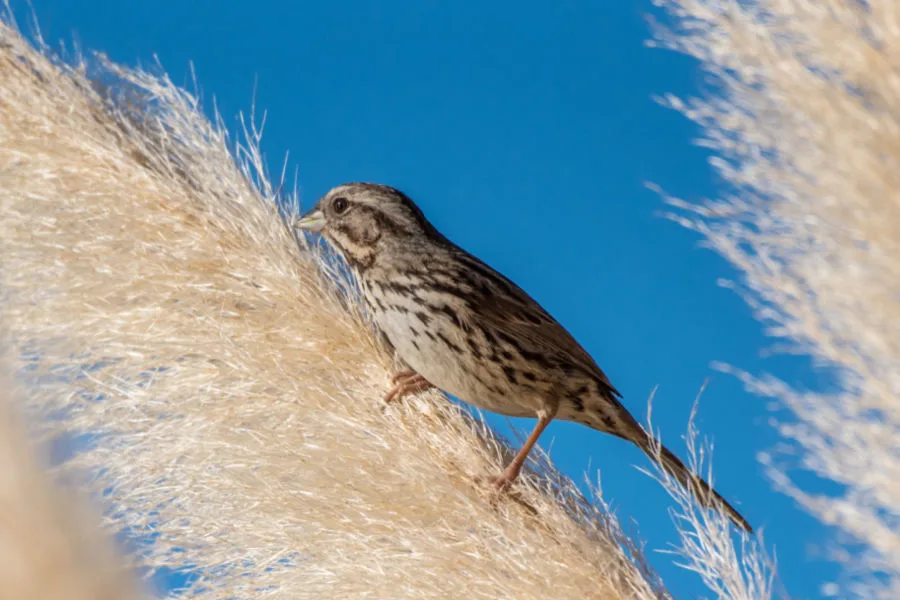Looking to help the birds that frequent your backyard survive the frigid cold and harsh weather conditions winter can bring? One thing is certain, they can use all the help they can get in order to stay alive until next spring!
Although there are a whole slew of migratory birds that head south before the cold of winter settles in, there are a fair share of birds who stay in place. These birds are often referred to as “resident” birds. And believe it or not, most of them live day to day looking for food, water, and even shelter.
Unlike other overwintering animals that are able to hibernate or store stashes of food to carry them through the winter months, resident birds don’t sleep the winter away or sock away reserve food. Instead, they work very hard to find enough to simply keep them warm at night and survive.

Although most overwintering birds can slow their metabolism a bit, staying warm requires energy. Birds spend most of the cold overnight burning calories to keep from freezing. And as soon as morning arrives, they are out looking for food and water to replenish their body.
It’s A Hard Life After All – How To Help Birds Survive Winter
It’s not an easy life for sure. Food is scarce in the winter for birds. Insects, which make up a big part of their daily diet, can be hard to find. As can fruits, nuts and berries. Making it worse, when the temperature plummets, finding fresh water can be nearly impossible.
If that wasn’t bad enough, overwintering birds are also a much easier target than ever for prey. After all, with many of the leaves and greenery gone in the winter, there are far less locations to provide shelter or cover.
All of those factors can be quite detrimental to their survival. Although there are no definitive statistics, many bird enthusiasts estimate that as many as a quarter or more of overwintering birds don’t make it through the winter. And less birds means that when the insects do come back, there is less help from the sky to help protect your plants and flowers!

Simply put, birds are extremely important when it comes to maintaining the balance of nature. Not just in the spring and summer, but all year round. And that is exactly why it is important to help our feathered friends make it through the winter alive.
When it comes to helping birds survive and even thrive through the winter months, it all boils down to providing them with three important things – fresh water, a healthy food supply, and a bit of cover to help protect them from their enemies and the cold.
3 Simple Ways To Help Keep Birds Safe & Alive Through Winter
#1) Keep A Water Source Available – How To Help Birds Survive Winter
One of the most important and often overlooked needs for birds in the winter is a source of fresh water. Without it, they simply can’t survive. Not just to quench their thirst, but also to stay warm.
Good hydration is a big key in helping birds to keep their metabolism up. And with a good, hearty metabolism, they are able to generate better body heat to keep them warm. But they also use fresh water to keep their wings clean and free of debris – which also plays a huge role in keeping their wings waterproof and their body dry.

Unfortunately, the colder it gets outside, the harder it can be for birds to locate fresh water. Birdbaths, fountains, small puddles and backyard fish ponds freeze over. As do many small creeks, streams and ponds. Even a mid-sized river can freeze over if the temperature plummets enough.
If desperate enough, birds will try to find a few drops here and there from melting snow or icicles. But if the temperatures stay cold enough and for a long enough time, it can spell big trouble for their survival.
So how can you ensure fresh water at all times in your backyard? If you happen to have a bird bath, an inexpensive bird bath heater is an excellent solution! The heater sits in the water and keeps the water from freezing over. Affiliate Product link : Birdbath heater
#2) Feed Them Early & Often – How To Help Birds Survive Winter
The only way resident birds can survive winter is by having enough energy to burn to keep their tiny little bodies from freezing. They literally eat to stay warm in the winter, and birds need to replenish that energy every single day.
Although they forage for whatever they can find, this is where having a consistent supply of food in bird feeders can make all the difference. Be sure to keep feeders supplied, especially in the early morning as birds head out to fuel up after burning energy from a long, cold night.

As for what types of food, a high fat/high calorie content diet is best. Black oil sunflower seeds, millet seed, peanuts or wild bird feeds made for high energy all fit the bill for winter feeding. Suet cakes are another great option to hang from trees. And don’t forget to scatter some feed on the ground for those birds who prefer to ground feed.
More than anything else, consistency is the name of the game. If birds have a steady supply of food and know where to find it, winter life can be much easier on them! See: How To Make Low Cost, Nutritious Bird Feed
#3) Provide Birds With Shelter Options
Birds need more shelter than ever to stay safe and warm in the winter. With most trees, bushes and shrubs devoid of their leaves, there is simply no place for them to hide. That is one reason why if you have ornamental grasses growing in your landscape – leave them up until spring!
Ornamental grasses can actually be a life saver for birds. Not only do they provide tons of cover and warmth for the birds, the seed heads at the top of plumes can be a huge source of nutrition for chickadees and other overwintering birds.
Leave bird house up instead of taking them down for the winter. For the winter months, move them to higher locations to give birds more protection. In addition, cover the top vent holes to help keep air and drafts to a minimum.

Finally, if you have the space to plant and grow evergreen shrubs, bushes and trees, do so! Evergreens provide major protection for resident birds in the winter. Even better, some evergreens even produce edible berries that help feed birds too!
Here is to helping the resident birds in your backyard survive winter, and to having more help with insects and weeds next year from your feathered friends!
Follow Our Facebook Page For Great Gardening Tips And Advice! This Is My Garden Facebook Page
This Is My Garden is a garden website created by gardeners, for gardeners. Jim and Mary Competti have been writing gardening, DIY and recipe articles and books and speaking for over 15 years from their 46 acre Ohio farm. They publish three articles every week, 52 weeks a year. Sign up today to follow via email, or follow along!
